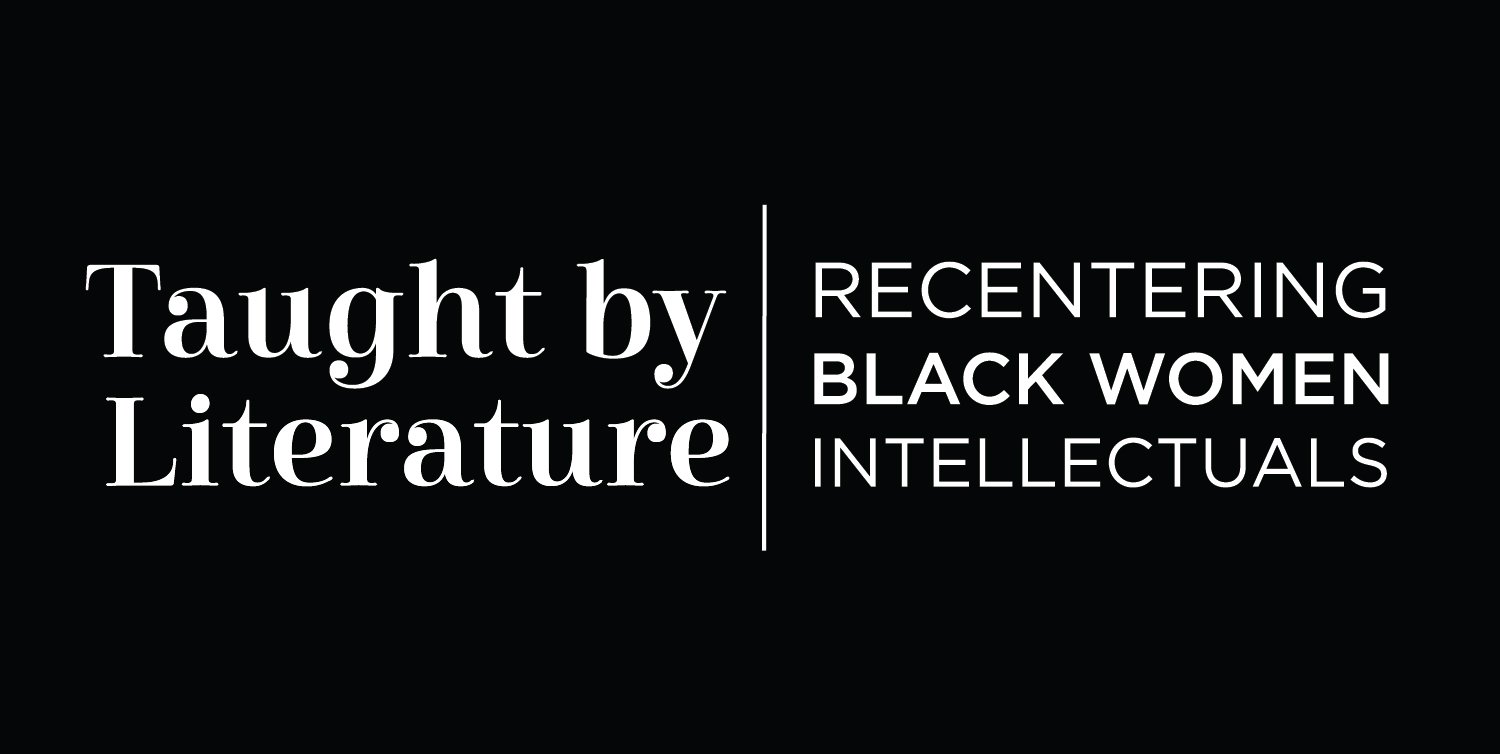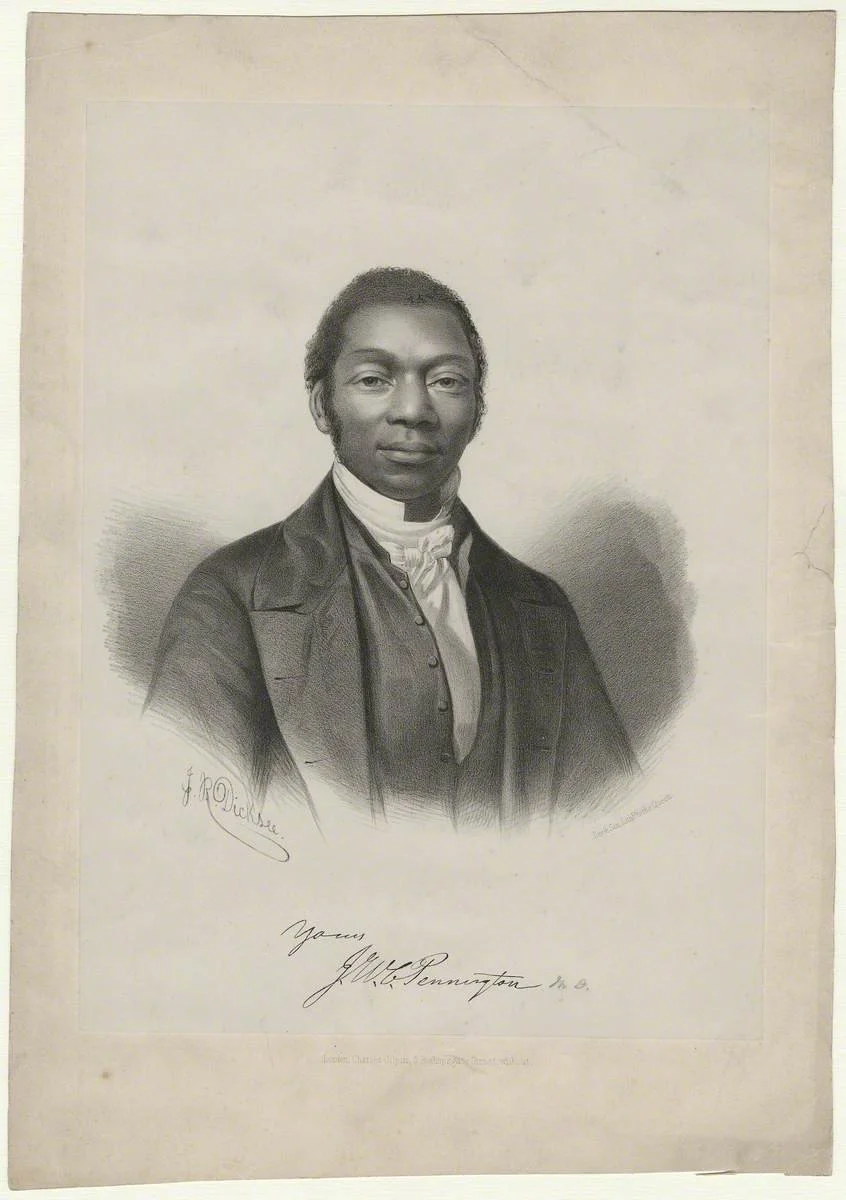
A Young Girl’s Guide to “Better”
by Jain Pouncey
Student Exhibition and Reflections | Fall 2025

Ann Plato
While at the American Antiquarian Society’s archives to do research for Taught by Literature’s website, I came across Ann Plato’s Essays: Including Biographies and Miscellaneous Pieces in Prose and Poetry (1841), a rare and significant work in African American literature that predates the Civil War. Upon my initial reading, I found her tone somewhat standoffish due to her strong ideologies regarding what a Black woman should and should not be. In Plato’s section titled “Two School Girls,” Plato uses rigid terminology to condemn a Black girl who cares more about her outer self than Plato’s ideals for a woman who cares more for her inner self. Although I understand where Plato is coming from and has a right to her opinions on the education of black women, I believe her choice of words may have been harsh when referring to the girl who cares for her outer appearance more than the girl who values her education. This viewpoint was particularly evident in Plato’s views on Black women’s education in the mid-1800s. Her writing suggests that she viewed her opinions as the definitive guide for how a Christian Black woman should navigate life in 19th-century America.
Although I have never been fond of history, visiting the Archives—filled with history from the top to the bottom—shifted my perspective. I have always believed that the past cannot be changed, so there was never any real need to study it. However, after I visited the Archives, I have come to understand that if humanity is to work toward changing the future, it must first grasp what it is trying to change. Understanding the past is the first step toward altering the future. Ann Plato worked incredibly hard to do just that. She authored her book at the young age of sixteen as a remarkably bright individual. Despite the barriers of her age, race, and gender, she grasped the lessons of the past and fought to change the future.
The book I handled at the Archives was small enough to fit in one’s pocket while on the go, with no more than sixty-five pages, composed of short poems, essays, and other forms of writing, no doubt each section straight to the point, seeing as there was no space to sugarcoat Plato’s work.
The pages were well-loved, with spills and damage caused to specific pages, suggesting that its owner frequently turned to it. The wear and tear only reinforced my belief that this book, with its philosophical undertones and straightforward approach, could have served as a holy grail for young girls in the 19th century due to the powerful viewpoint Plato conveyed, especially to those who may have been told that they “could not,” perhaps serving as a young girl’s guide to becoming what they ought to be.
Though Plato’s words may come across as blunt or judgmental in her essay “Two School Girls” when speaking of the two girls, one of whom does not fit the standard of what she believes to be of proper standing for a young lady and the other being the perfect example of what she deems fit of a “glorious” woman (page 42). Plato often uses terms such as “embarrassing” and “wasteful” (page 42) when describing the ladder of her ideals, compared to the other young girl who fits her ideals of a woman—one who puts her studies first, and religion at the forefront of her mind—describing her position with her family as “—well regulated,” to the point of providing her findings on “order, industry, and perseverance.” to them (page 42.)
Plato’s prose is woven into a philosophical argument about the ethics and expectations one should possess concerning various aspects of life, such as religion and education, which are all still prevalent in today’s society. She believed that to improve society, one must first improve oneself. Despite recognizing her condescending tone in the “Two School Girls” essay, I did not disagree with her expression. While many may not prefer clear and straightforward opinions and describe such matters as “blunt” or “rude” to avoid sugarcoating their words, I appreciate such clarity. Sometimes, to maintain one’s peace, one may appear as the “bad guy.” Women of color who bow to the expectations of society or underestimate themselves risk losing their identity to the misfortune of conformity, reducing themselves to an assumption or stereotype.
Plato was a young girl who wanted to improve the world. While most black authors during the19th century focused more on the context of slavery, she wrote a feminist message to young women across America. Plato’s rigid opinion could be seen as negative if viewed by a dismissive audience. Still, it could be powerful and inspirational if put in the hands of those willing to change the world by starting with bettering themselves.
JAIN POUNCY (she/her) is a Sophomore at Villanova University studying English and Humanities. She serves on the Executive Board for Girls Who Read, and enjoys dancing and chess. She is a member of the BIPOC Writing Community and hopes to continue at Villanova Law after graduation. She looks forward to making a mark in history, just as the women she researches through “Taught By Literature: Recentering Black Women Writers” have before her, and to spreading awareness of black women who have had their voices silenced for being “too much” or unconventional.
Image of James W.C. Pennington, Black Central Europe, Unknown. “History.” Talcott Street Church Commemoration Project, 2024





